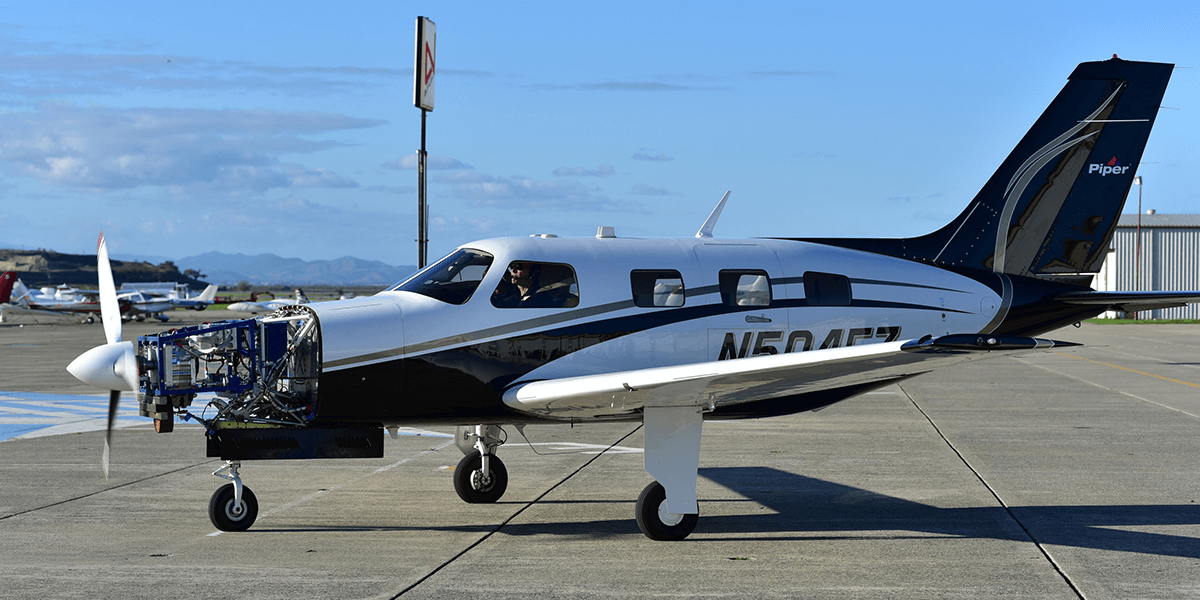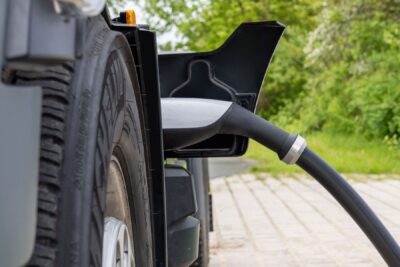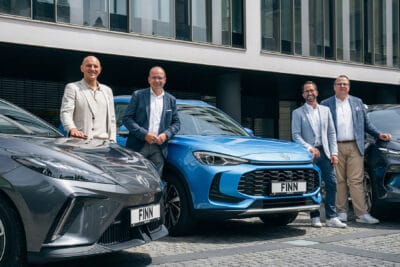ZeroAvia completes fully-electric maiden flight
ZeroAvia, which specialises in electric aircraft propulsion systems, has now completed the maiden flight of a six-seater battery-electric aircraft at Cranfield Airport as part of the HyFlyer project supported by the British government.
The maiden flight made with the battery-powered aircraft is only the first step on the way to test flights with a hydrogen aircraft, which are to follow later this summer. ZeroAvia, as reported, is developing a fuel cell propulsion system for aeroplanes and is now able to be more specific about its commercialisation plans. The Californian company wants to make hydrogen planes with 10 to 20 seats ready for operation within three years and says that H2 aeroplanes for 50 to 100 passengers should be possible by the end of this decade. The company considers flights with more than 200 seats and a range of more than 3,000 miles (5,556 kilometres) to be an achievable target by 2040.
ZeroAvia has still not provided technical details on the FC aircraft such as the structure of the drive, integration into the fuselage, the location of the tanks or the performance data. On the other hand, ZeroAvia reports that a hydrogen refuelling infrastructure recently went into operation at Cranfield Airport and that they have completed a set of ground-based flight simulations with full power for long-distance hydrogen flights. The project involves the European Marine Energy Centre (EMEC), which is responsible for developing the refuelling infrastructure, and Intelligent Energy, which is modifying its fuel cell technology for aviation applications.
ZeroAvia, a Silicon Valley start-up, was founded by Val Miftakhov, known as the founder and CEO of eMotorWerks, the Californian charging infrastructure specialist acquired by Enel in 2017. “With the rapid decarbonisation of land transportation, the rapidly growing aviation industry will soon become the leading source of emissions,” says Miftakhov. “We must, therefore, find ways to make aviation more sustainable,” the CEO said last year when presenting the company’s plans. ZeroAvia prefers a hydrogen-electric drive to a battery-electric system with the reasoning that hydrogen would later have lower operating costs and a more promising energy-to-weight ratio. In the company’s view, this will make the commercial operation profitable on a much larger scale and in a shorter time frame.
ZeroAvia’s development work is embedded in the HyFlyer project, which is being pushed by the British government. It aims to decarbonise small medium-range passenger aircraft. The conventional drivetrain in the plane is to be replaced by electric motors, fuel cells or gas storage systems. The project partners are working towards a flight over 250 to 300 nautical miles from Cranfield to the Orkney Islands in Scotland as the highlight of the HyFlyer project.





0 Comments